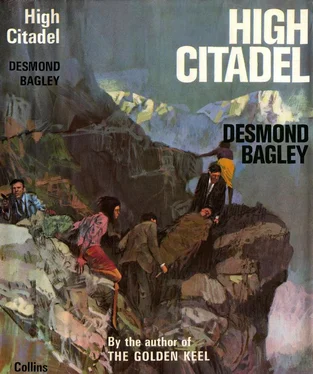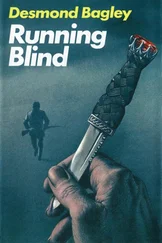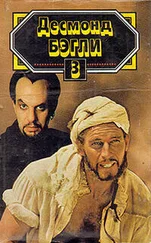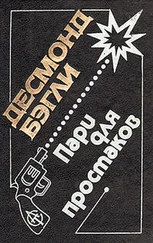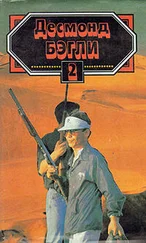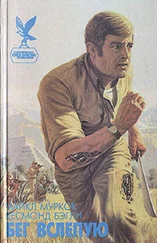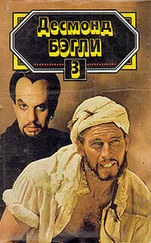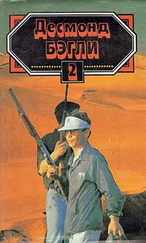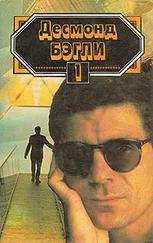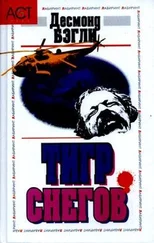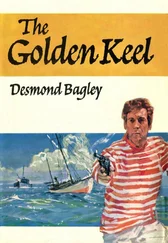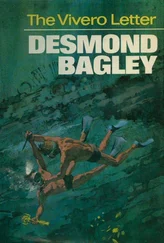That was what they should have done in the first place — this searching of the mountain in the mist was futile. The Russian was definitely a better tactician than Santos; he had not fallen for their trick of promising to give up Aguillar, and now he was preparing to ram his force home to the mine.
O’Hara grimaced as he wondered what would happen at the camp.
Now that the mountainside ahead of him was clear of the enemy he made better time, and deliberately stayed as close as he could to the road. Soon he heard the groan of engines again and knew that the communist mechanized division was on its way. He saw the headlights as a jeep and a truck went past and he paused, listening for what was coming next. Apparently that was all, so he boldly stepped out on to the road and started to hobble along on the smooth surface.
He thought it was safe enough; he could hear if another truck came up behind and there was plenty of time to take cover. Still, as he walked he kept close to the edge of the road, the sub-machine-gun at the ready and his eyes carefully scanning the greyness ahead.
It took him a very long time to get anywhere near the camp and long before that he heard a few scattered shots and what sounded like an explosion, and he thought he could detect a glow up the mountain but was not sure whether his eyes were playing tricks. He redoubled his caution, which was fortunate, because presently he heard the thud of boots ahead of him and he slipped in among the rocks on the roadside sweating with exertion.
A man clattered past at a dead run, and O’Hara heard the wheezing of his breath. He stayed hidden until there was nothing more to be heard, then came on to the road again and resumed his hobbling climb. Half an hour later he heard the sound of an engine from behind him and took cover again and watched a jeep go by at a crawl. He thought he could see the Russian but was not sure, and the jeep had gone by before he thought to raise the gun.
He cursed himself at the missed opportunity. He knew there was no point in killing the rank-and-file indiscriminately — there were too many of them — but if he could knock out the king-pins, then the whole enemy attack would collapse. The Russian and the Cuban would be his targets in future, and all else would be subordinated to the task of getting them in his sights.
He knew that something must have happened up ahead and tried to quicken his pace. The Russian had been sent for and that meant the enemy had run into trouble. He wondered if Benedetta was safe and felt a quick anger at these ruthless men who were harrying them like animals.
As he climbed higher he found that his eyes had not deceived him — there was a definite glow of fire from up ahead, reflected and subdued by the surrounding mist. He stopped and considered. The fire seemed to be localized in two patches; one small patch which seemed to be on the road and another, which was so large that he could not believe it. Then he smiled — of course, that was the camp; the whole bloody place was going up in flames.
He had better give both localities a wide berth, he thought; so he left the road again, intending to cast a wide circle and come upon the road again above the camp. But curiosity drew him back to where the smaller fire was and where he suspected the Russian had gone.
The mist was too thick to see exactly what had happened but from the shouts he gathered that the road was blocked. Hell, he thought; that’s the cutting where Willis was going to dump the cable drum. It looks as though it’s worked. But he could not explain the fire which was now guttering out, so he tried to get closer.
His ankle gave way suddenly and he fell heavily, the crossbow falling from his grasp with a terrifying loud noise as it hit a rock, and he came down hard on his elbow and gasped with pain. He lay there, just by the side of the road and close by the Russian’s jeep, his lips drawn back from his teeth in agony as he tried to suppress the groan which he felt was coming, and waited for the surprised shout of discovery.
But the enemy were making too much noise themselves as they tried to clear the road and O’Hara heard the jeep start up and drive a little way forward. Slowly the pain ebbed away and cautiously he tried to get up, but to his horror he found that his arm seemed to be trapped in a crevice between the rocks. Carefully he pulled and heard the clink as the sub-machine-gun he was holding came up against stone, and he stopped. Then he pushed his arm down and felt nothing.
At any other time he would have found it funny. He was like a monkey that had put its hand in the narrow neck of a bottle to grasp an apple and could not withdraw it without releasing the apple. He could not withdraw his arm without letting go of the gun, and he dared not let it go in case it made a noise. He wriggled cautiously, then stopped as he heard voices from close by.
‘I say my way was best.’ It was the Cuban.
The other voice was flat and hard, speaking in badly-accented Spanish. ‘What did it get you? Two sprained ankles and a broken leg. You were losing men faster than Aguillar could possibly kill them for you. It was futile to think of searching the mountain in this weather. You’ve bungled this right from the start.’
‘Was your way any better?’ demanded Santos in an aggrieved voice. ‘Look at what has happened here — a jeep and a truck destroyed, two men killed and the road blocked. I still say that men on foot are better.’
The other man — the Russian — said coldly, ‘It happened because you are stupid — you came up here as though you were driving through Havana. Aguillar is making you look like a fool, and I think he is right. Look, Santos, here is a pack of defenceless airline passengers and they have held you up four days; they have killed six of your men and you have a lot more wounded and out of action because of your own stupidity. Right from the start you should have made certain of the bridge — you should have been at the mine when Grivas landed the plane — but you bungled even there. Well, I am taking over from now, and when I come to write my report you are not going to look very good in Havana — not to mention Moscow.’
O’Hara heard him walk away and sweated as he tried to free his arm. Here he had the two of them together and he could not do a damn’ thing about it. With one burst he could have killed them both and chanced getting away afterwards, but he was trapped. He heard Santos shuffle his feet indecisively and then walk quickly after the Russian, mumbling as he went.
O’Hara lay there while they hooked up the Russian’s jeep to the burned-out truck and withdrew it, to push it off the road and send it plunging down the mountain. Then they dragged out the jeep and did the same with it, and finally got to work on the cable drum. It took them two hours and, to O’Hara, sweating it out not more than six yards from where they were working, it seemed like two days.
Willis struggled to get back his breath as he looked down at the burning camp, thankful for the long hours he had put in at that high altitude previously. He had left Benedetta and Armstrong, glad to get away from the certainty of a hand-to-hand fight, defenceless against the ruthless armed men who were coming to butcher them. He could see no prospect of any success; they had fought for days against tremendous odds and the outlook seemed blacker than ever. He did not relish the fact of his imminent death.
With difficulty he had rolled out the drum of paraffin and went from hut to hut, soaking the interior woodwork as thoroughly as possible. While in the last hut he thought he heard an engine and stepped outside to listen, catching the sound of the grinding of gears.
He struck a match, then paused. Benedetta had told him to wait for the shooting or noise and that had not come yet. But it might take some time for the huts to catch alight properly and, from the expression he had seen on Benedetta’s face, the shooting was bound to come.
Читать дальше
Конец ознакомительного отрывка
Купить книгу
